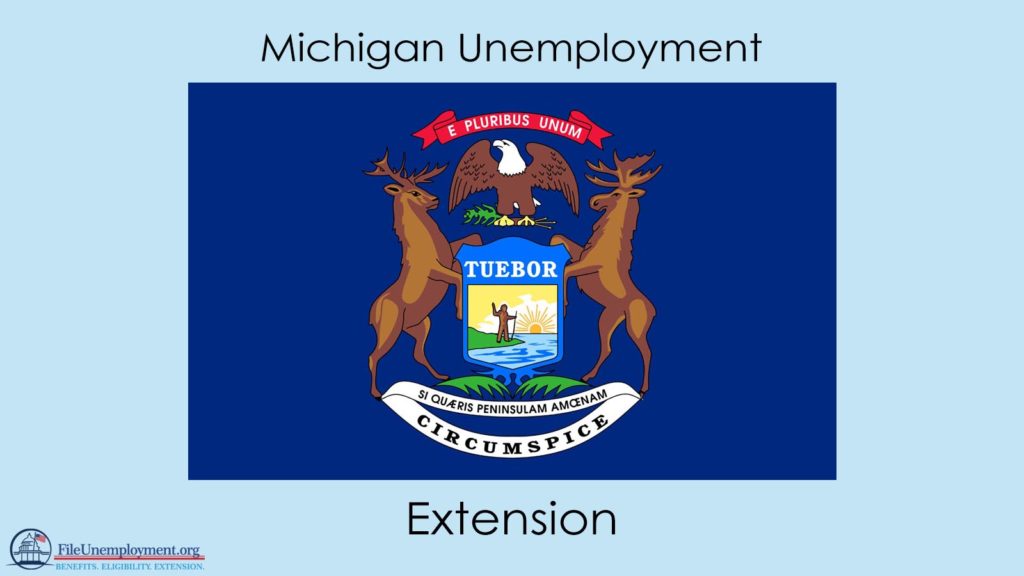
Extended Benefits (EB) in Michigan
During some emergencies or sustained periods of higher than typical unemployment rates, states may offer extended benefits that kick in after the typical unemployment benefits are exhausted. The Extended Benefits (EB) program is funded at the federal level and administered by individual states.
The Extended Benefits program allows for up to 20 weeks of additional Michigan unemployment insurance benefits for workers who have exhausted their regular unemployment compensation – as well as any Federal Pandemic Unemployment Compensation (FPUC). Weekly benefit amounts are the same as the worker previously received through traditional UI benefits. Extended benefits automatically are issued to eligible claimants who fully exhaust their weeks of state UI benefits with no other action required. If you’re already receiving benefits, you should be able to file your weekly claim as usual.
It’s important to remember that extended benefits are paid only when Michigan’s unemployment rate rises to a level sufficient to trigger the program and start benefit extensions. The state of Michigan began paying extended benefits in July 2020 and ended the extension in April 2021. Extended Benefits end when the unemployment rate drops below trigger levels or when the Total Unemployment Rate drops below 8% in Michigan, whichever comes first.
Pandemic Unemployment Assistance in Michigan
Pandemic Unemployment Assistance provided up to 79 weeks of unemployment compensation for individuals whose work was dramatically reduced or who lost employment because of the Covid-19 pandemic. This was provided in addition to the typical 20 weeks allotted for traditional unemployment benefits in Michigan. PUA also expanded Michigan unemployment eligibility by being available to workers who were self-employed, gig workers, independent contractors, clergy, nonprofit employees, and others not typically covered under unemployment benefits.
Under PUA, the minimum weekly benefit amount was $160 and the maximum weekly benefit was $362.These benefits began in April 2020 and expired in Michigan in September 2021.
Pandemic Emergency Unemployment Compensation
Pandemic Emergency Unemployment Compensation extended the amount of time that Michigan workers could receive benefits. When a claimant used up all 20 weeks of traditional unemployment benefits, PEUC kicked in to offer an additional 53 weeks of unemployment compensation. This program expired in Michigan in September of 2021.
Federal Pandemic Unemployment Compensation
Federal Pandemic Unemployment Compensation offered an additional weekly $600 for all benefits of unemployment compensation, beginning in April 2020 and continuing through September 2021. These federal unemployment benefits also provided an extra $300, starting in December 2020 and extending through September 2021.
Mixed Earners Unemployment Compensation
For workers who reported at least $5,000 in self-employed income, Mixed Earners Unemployment Compensation opened access to an additional $100 of weekly compensation. The program began in January 2021 and expired in Michigan in September 2021.
Disaster Unemployment Assistance in Michigan
Disaster Unemployment Assistance originates with the Federal Emergency Management Agency and is triggered when the President of the United States declares an area to be a major disaster. These benefits are designed to help those who have become unemployed as a direct result of the declared disaster. To qualify for Disaster Unemployment Assistance, a claimant must meet at least one of the following criteria:
- No longer employed.
- Is unable to reach their place of work.
- Cannot work due to damage to the place of work.
- Becomes the head of household and is seeking work because the former head of household died as a result of the disaster.
- Cannot work because of a disaster-incurred injury.
When a disaster is declared in Michigan, the state will publish announcements regarding the availability of Disaster Unemployment Assistance. Michigan residents who become unemployed as a direct result of the declared disaster should contact the State Unemployment Insurance agency. This includes those who have moved or have been evacuated to another state. Contact the state agency as soon as possible to submit an application for assistance.
Applications for Disaster Unemployment Assistance must be filed by unemployed workers within 30 days of the DUA availability announcement within their state. Claimants must follow the instructions in the announcement and file for DUA based on the filing methods used by the state.
In Michigan, applicants must provide proof that they were employed or self-employed at the time of the disaster or were scheduled to begin or resume employment, including self-employment, when the disaster occurred. Proof of employment can be submitted at the time of filing or within 21 days of filing the initial DUA claim. A copy of the claimant’s most recent federal income tax forms or check stubs also may be required.
Lost Wages Assistance
Lost Wages Assistance was a six-week program that ran during August and September of 2020 in Michigan. The program was available for Michigan workers who qualified for a weekly unemployment insurance benefit amount from any of the programs listed here:
- Unemployment compensation, including regular State Unemployment Compensation, Unemployment Compensation for Federal Employees and Unemployment Compensation for Ex-Service members
- Pandemic Emergency Unemployment Compensation
- Pandemic Unemployment Assistance
- Extended Benefits
- Work Share
- Trade Readjustment Assistance
- Payments under the Self-Employment Assistance program.
If a claimant indicated on their Michigan unemployment application that they were unemployed or partially unemployed because of COVID-19. Regardless of whether their claim was for traditional unemployment insurance benefits or Pandemic Unemployment Assistance, they automatically received Lost Wages Assistance payments without any further action.
Payments were added to regular unemployment benefit payments for all eligible weeks. For those who did not indicate that they were unemployed or partially unemployed due to COVID-19 when they first submitted their unemployment claim, they were required to provide a one-time certification.





Comments are closed.